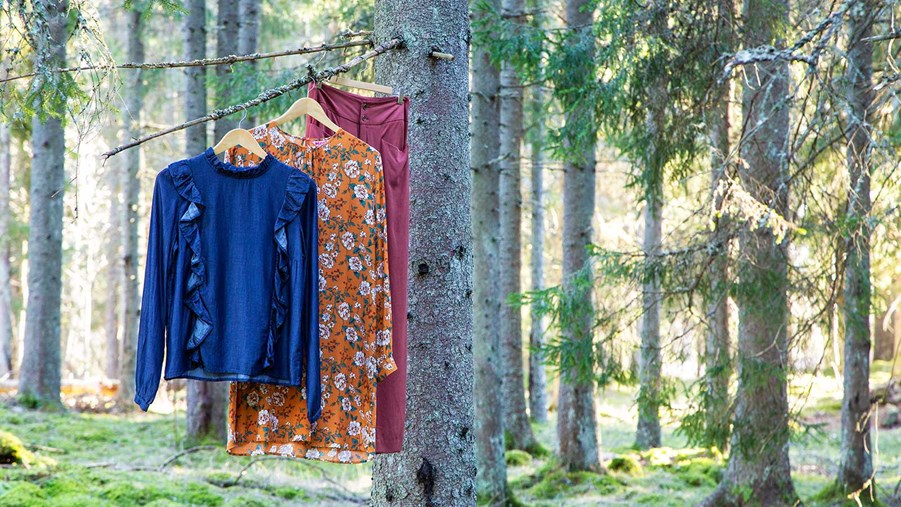
Biomass is a limited resource. Therefore, resource-efficient processes with a high wood yield are key objectives. New technical solutions also make it possible to make better use of underused resources and residual streams from the forestry industry.
The forest industry’s production chains are continually developing and becoming increasingly efficient. Current production prioritises sawn timber and pulpwood, but also gives other assortments such as firewood, branches and tree tops, which today are not highly processed. Sawmills and the pulp and paper industry generate relatively pure residual streams such as chips, sawdust and cutter shavings, as well as bark, fibre sludge and other assortments that are more difficult to process. Pulp processes also produce residual streams such as lignin, hemicelluloses and extractives. These residual streams have mainly been used for pine oil and turpentine and for internal energy production, but increasingly efficient processes are making these materials more useful for other purposes.
Today, by-products from the forestry industry are mainly used for large-scale production of electricity and heat that contribute to Sweden’s renewable energy supply. The economic and environmental value of the use of raw materials and by-products should be maximised before they are used for energy production. Better use of residual streams from forestry, sawmills and pulp mills and a higher degree of processing for forest by-products is a top priority for the forestry industry.
New materials from forest raw materials
The Swedish forest industry can produce growing amounts of raw materials to substitute other materials, which in turn creates new opportunities. Interest has grown in entirely new types of fibre products based on forest raw materials, such as cellulose-based composites and optical materials, and forest-based textiles and lightweight materials.
Fibre-based packaging has considerable potential to replace fossil-based alternatives, but sustainable solutions are needed for functions such as barriers, and recycling processes that maintain the raw materials’ potential.
Fibres with higher wood yield and resource-efficient processes
The pulp and paper industry operates in highly competitive international markets. A majority of its manufacturing costs are associated with forest raw materials and energy. To make production economically attractive in a country like Sweden it is necessary that raw materials are used efficiently. This also applies to future bulk products from residual streams of forest raw materials.
Making and using more fibres with a higher wood yield improve the industry’s raw material efficiency. The industry’s footprint is also reduced through new and further improvement of process solutions that result in better use of raw materials and reduced energy and water consumption. Renewable alternatives to fossil additive chemicals can enable fossil-free processes in the paper and pulp industry as well as in other industries.
Fibre-based products in circular systems
Sweden is an innovative actor that conducts cutting-edge research in fibre-based materials and products. Demands are now growing from Sweden and internationally that these products should contribute to circular systems in their respective markets.
Fibre-based products must be designed for increased reuse and recycling with several use cycles and minimised value losses.
To achieve circularity, there is considerable need for increased co-operation between existing and new actors along the value chains and between different sectors. This will require the exchange of knowledge and experience between actors, as well as the creation of industrial symbioses where by-products or waste from one operation are used as a valuable raw material in another value chain.
Do you want to know more about developments and opportunities related to fibre-based products and biorefineries? Read more in the Swedish Forest-based Sector Research Agenda here.



